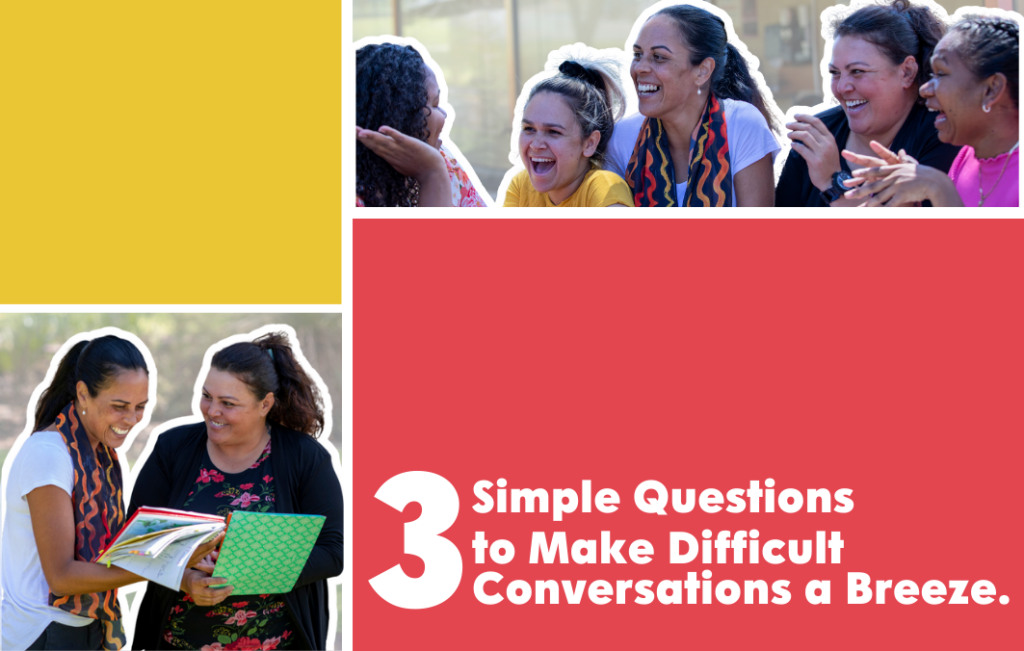
Sometimes, things don’t go as planned—a poorly designed setup, a rushed closing routine, or a conflict between educators. These moments can be stressful and challenging, often leading to those dreaded, difficult conversations with an Educator.
These conversations are crucial for growth and development but can be fraught with tension and misunderstandings. To navigate these discussions effectively, it’s essential to ask the right questions. Here are three (3) powerful questions that can help you have more productive and empathetic conversations with your team.
Do You See It Differently?
When approaching a difficult conversation, it’s important to understand the other person’s perspective. Asking, “Do you see it differently?” invites the educator to share their viewpoint and opens the door for a two-way dialogue. This question demonstrates that you value their opinion and are genuinely interested in their perspective.
Why It Works:
- Encourages openness: By asking this question, you signal that you are open to hearing their side of the story.
- Promotes understanding: It helps you gain insight into their thought process and feelings, which can be crucial for finding common ground.
- Builds trust: Showing that you are willing to listen and consider their perspective fosters a sense of trust and mutual respect.
Is That What You Intended?
Miscommunication is a common issue in any conversation, especially when the topics are sensitive or complex. Asking, “Is that what you intended?” helps clarify any misunderstandings and ensures that both parties are on the same page.
Why It Works:
- Clarifies intentions: This question helps uncover the true intentions behind actions or statements, reducing the likelihood of misinterpretation.
- Prevents assumptions: It encourages both parties to avoid making assumptions and instead seek clarity.
- Facilitates resolution: Understanding the intended message or action can help resolve conflicts more effectively and find mutually agreeable solutions.
Is There Something That I’m Missing That Would Help Me Understand?
Empathy and understanding are key components of effective communication. By asking, “Is there something that I’m missing that would help me understand?” you show a willingness to fully grasp the Educator’s situation and feelings.
Why It Works:
- Demonstrates empathy: This question shows that you care about their experience and are committed to understanding their perspective fully.
- Encourages comprehensive communication: It invites the Educator to share any additional information that might be relevant, leading to a more thorough and nuanced conversation.
- Builds a collaborative atmosphere: By seeking to understand, you create a more cooperative and less adversarial environment, which is conducive to problem-solving.
Navigating difficult conversations requires a combination of empathy, clarity, and open-mindedness. By incorporating these three questions into your discussions, you can create a more respectful and productive dialogue with your educators. Remember, the goal is not just to convey your message but to understand and address the underlying issues collaboratively.
Effective communication in difficult conversations hinges on the questions you ask. These questions are powerful tools that can transform challenging discussions into opportunities for growth and connection. Mastering these questions will help you build stronger, more trusting relationships with your team
Adrian Pattra is a management consultant with a Master of Education (Ed. Psychology). He is currently facilitating the brand new webinar series "Holding Educators Accountable" 
Leave a Reply